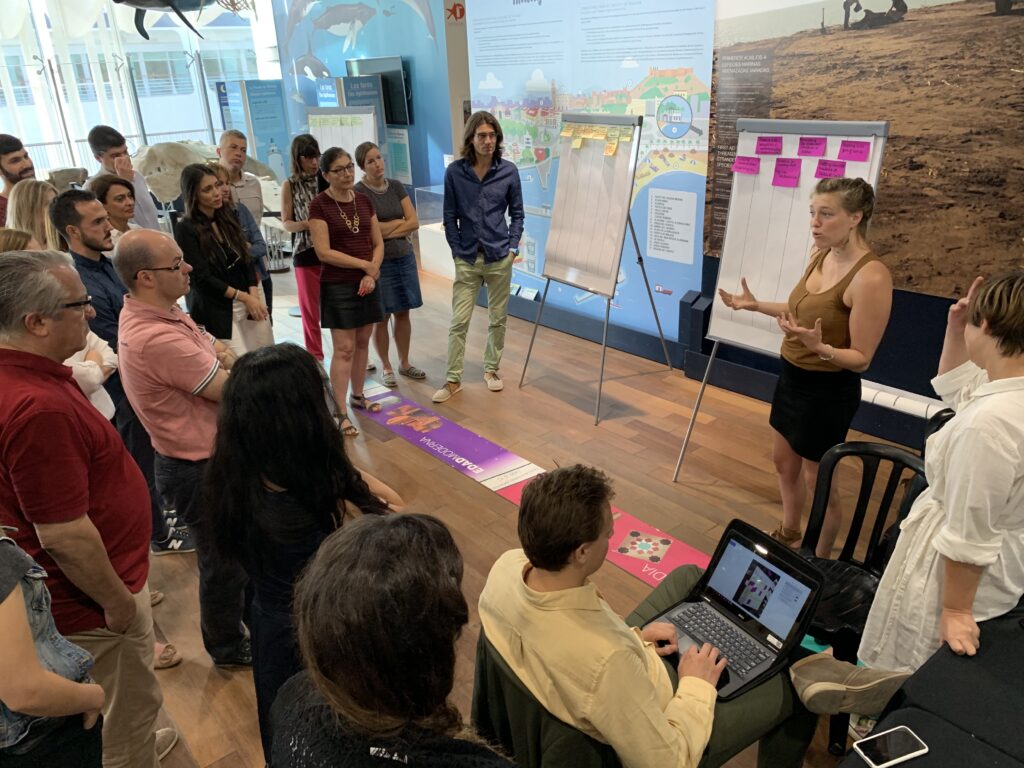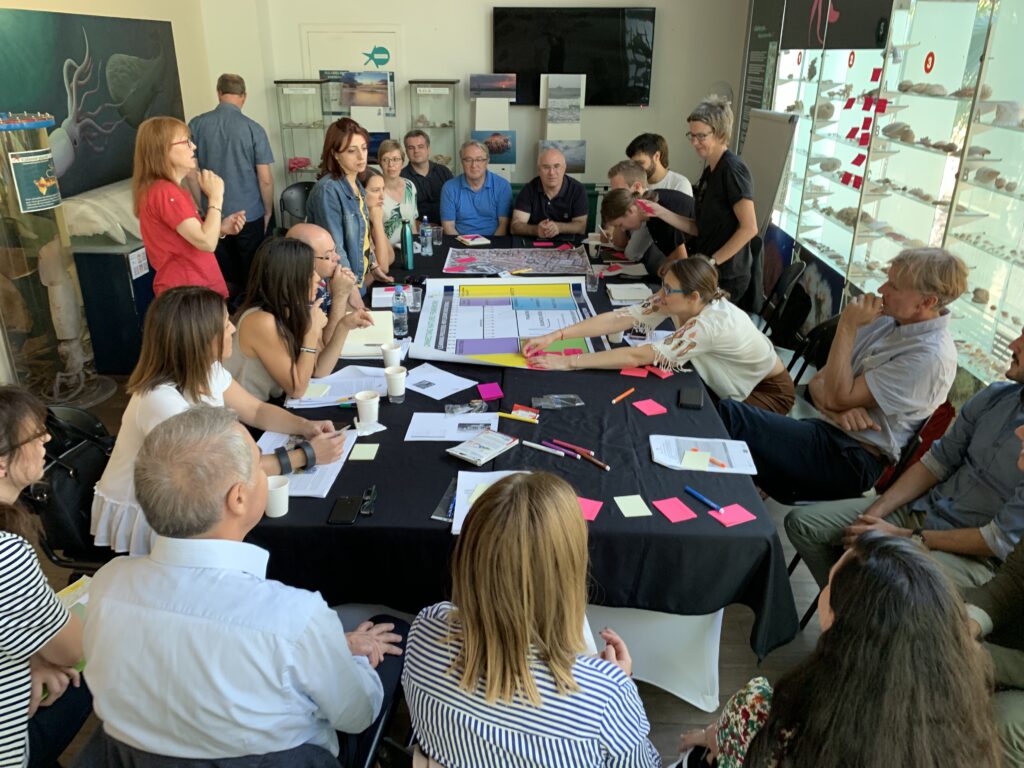
Adrian Hill
Adrian is a founding partner of the Osmos Network responsible for general operations with expertise in production in cities and ecological systems.
Osmos is a mission-driven organisation working with public administrations, private organisations and civic communities. We work within three sectors: ecosystems, public space & community and production. Where we see an opportunity not to be missed, we also self-initiate projects.
Osmos gathers a network of experts from numerous disciplines and countries. Our multidisciplinary team brings together years of practical experience and theoretical knowledge. We have backgrounds in design, architecture, urbanism, economics, sociology, finance, communications, economics and more. We are practitioners with academic backgrounds. We are pragmatic idealists. We won’t promise to solve all your problems, yet we are dedicated to make you take one -or more- steps in the right direction. Try to remember the last time somebody was this honest with you!

Established as a foundation in 2018, Osmos takes the role of a ‘bridging actor’ in handling complex and dynamic challenges: it offers services to design for change, bring ideas into action, engage communities and share knowledge. The organisation is structured as a Community Interest Company (CIC) based out of the Netherlands. Offices are located in Amsterdam and Brussels and operates largely within Europe.

We have a human-centred approach built on collaboration, humour and empathy. We approach most of our work based on an adapted version of the ‘Double Diamond’, a method promoted by the UK Design Council. We use this method to ensure that we can properly understand the scope of a problem, while also arriving at concrete and practical results.

Audre Lorde’s statement “The master’s tools will never dismantle the master’s house” cautions us that it’s not sufficient to redesign systems, objects or processes without also redesigning the approaches we use and the methods and techniques we employ. This approach is not about designing the solutions for problems but about designing new ways to see and ultimately understand the problems in the first place.
We argue that there has never been a more urgent time to rethink and re-design the ways we look at, and make sense of our world. Today our society faces multiple overlapping crises (social, ecological, economic, health, etc.); however, when we try to address them, we continue to apply the same ways of thinking that caused the crises in the first place.
The methodologies we use to understand our world determine how we construct our notions of the world itself. At the heart of this is the question: what kind of imaginative, creative, inspired or intuitive methodologies do we need to respond to the problems of this age or in the future? Osmos takes a transversal approach to design, drawing diverse range of approaches from design and art, to sociology, psychology and economics.
Osmos views design as unshackled by the restraints of class, education or markets. As such design becomes a fundamental human medium for expression and exchange in order to nurture or improve material and social conditions. In an age defined by overlapping crises—from social, economic, ecological and now health—never has there been a greater need to foster local and bespoke solutions to meet the immediate needs of communities.
The right to design is a radical and socially grounded reading of design, empowering communities and organisations to take agency over their material surroundings, increasing their resourcefulness and shaping ideas or sensibilities.
A truly transversal approach to design pushes those within the design field to take a critical distance from the professionalised, often patronising, view of design and to see design as a more universal and natural way of interacting with the material world. Moreover, it opens up design to all, providing access to a wide diversity of tools, information and education for them to remake their physical and social world as they consider most fitting to their human needs and to their claims as citizens.


Adrian is a founding partner of the Osmos Network responsible for general operations with expertise in production in cities and ecological systems.

Eric is a co-founder of the Osmos Network, focused on the organisation’s business development.

Francesca is a community development worker, educated in psychology.

Hanne is an Osmos Network partner bringing the team expertise on the commons, participative processes and the development of public space.

Julia is an Osmos collaborator with expertise in visual communications and public space.

Laurens is an Osmos Network partner bringing the network expertise in psychology, quantitative and qualitative analysis, and human-centred design.

Liana is an Osmos expert bringing the network a strong foundation in collaboration and cooperation to empower local and regional organisations and communities.

Marco is a founding partner of the Osmos Network responsible for the organisation’s financial management. He brings the network extensive expertise in finance, fiscal strategy, business management and accounting.

Michael is an Osmos expert bringing the network theoretical and methodological skills to address complex and systemic problems often rooted at an epistemological (knowledge) or ontological (being) level.

Nienke is an Osmos expert based Amsterdam (NL). She brings the network extensive experience in visual communication, design research and in agro-ecology.

Stephan is a co-founder and expert of the Osmos Network bringing the network practical experience and theoretical knowledge on local economics, resource management and governance within bio-based production chains.

Toha is an Osmos expert bringing the network expertise in anthropology and years of practical experience with community building, advocacy and grass-roots development. As a passionate photographer, she also supports the team with documentation of events.
We’ll send you a very occasional update of what we’re doing and thinking about.
This website uses cookies so that we can provide you with the best user experience possible. Cookie information is stored in your browser and performs functions such as recognising you when you return to our website and helping our team to understand which sections of the website you find most interesting and useful.
Check out our privacy policy and our terms and conditions for more information about how and why we use cookies.
Strictly Necessary Cookies are enabled at all times.
If you disable this cookie, we will not be able to save your preferences. This means that every time you visit this website you will need to enable or disable cookies again.